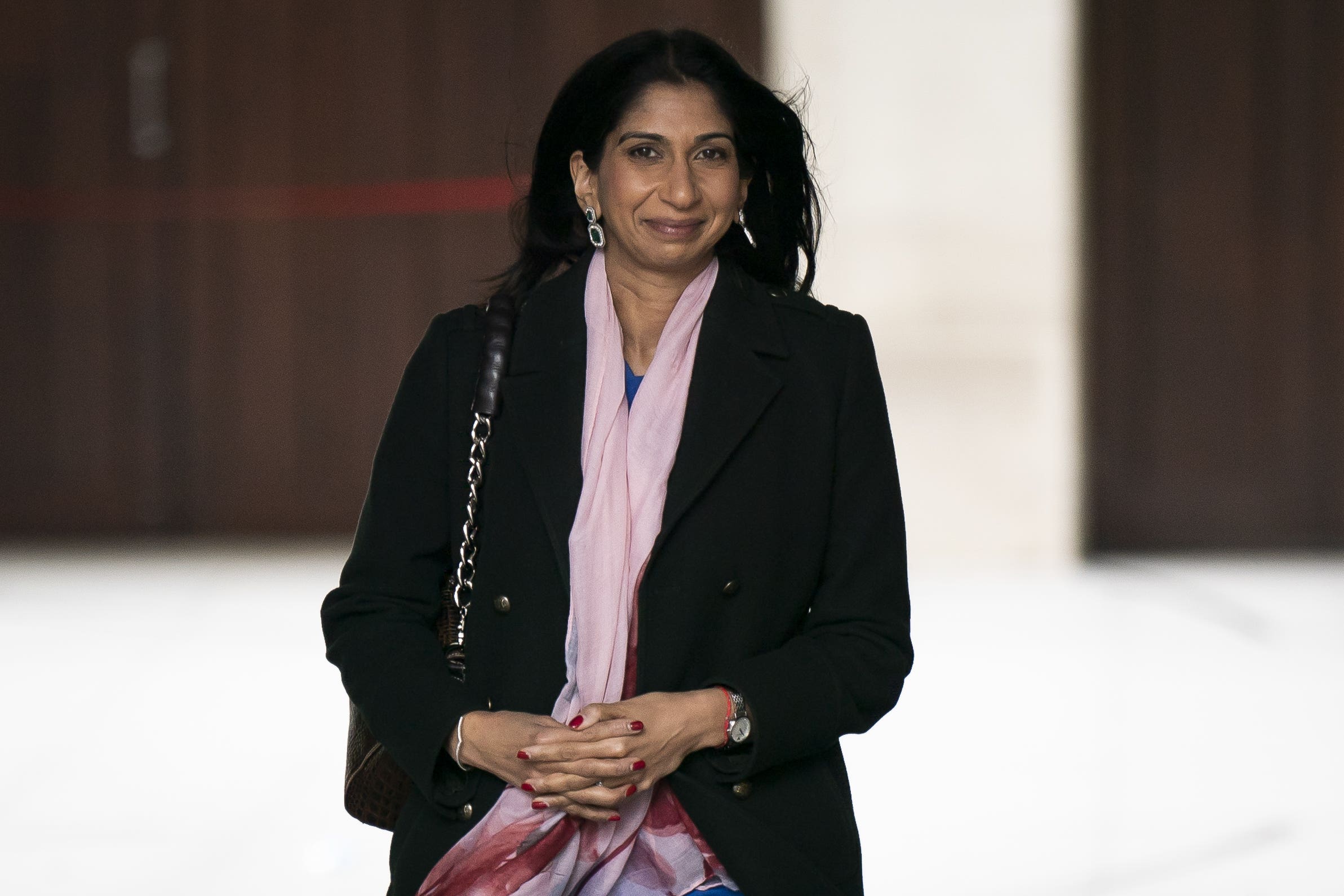When it comes to small boats, the government is all tough talk and empty promises
Editorial: Ministers’ energies would be better spent on tackling the backlog of 160,000 asylum cases, which has grown exponentially on their watch

For someone holding one of the great offices of state, Suella Braverman’s appearances on the Sunday morning TV shows are surprisingly rare. When the home secretary was interviewed by Sky News and the BBC on Sunday, it was easy to understand why this is so.
Ms Braverman is an enthusiastic champion of the right-wing Conservatives who want to see annual net migration to the UK reduced from 504,000 to “tens of thousands”, and who would pull out of the European Convention on Human Rights tomorrow in order to stop it from blocking plans to send asylum seekers to Rwanda.
The problem is that neither of these things is a policy of Rishi Sunak or his government, so he must constantly manage tensions between himself and the person he appointed to the Home Office to shore up his right flank.
It was a pity that, in her interviews, Ms Braverman, an ardent Brexiteer, could not bring herself to admit that the extra passport checks required after Britain left the EU had played a part in the long queues at the Port of Dover that gave thousands of people a miserable start to their Easter holidays.
Her position contradicts the view of those who run the port, and experts including Simon Calder, The Independent’s travel correspondent. It is also at odds with common sense. Our politicians would surely be given more credit by an understandably sceptical public if they were a little more honest about such matters.
Ms Braverman was equally unconvincing when she tried to defend the government’s indefensible plan to send to Rwanda people who cross the English Channel in small boats. After a recent visit to the African country, accompanied by a hand-picked group of journalists from sympathetic media outlets, she is convinced that Rwanda is a “safe” country to which to send migrants.
However, she had no answer when the BBC’s Laura Kuenssberg asked her about the shooting dead of 12 Congolese refugees by Rwandan police during a 2018 protest at a refugee camp over cuts to food rations. It was surprising that Ms Braverman was not familiar with the incident, given that it had been condemned by the United Nations refugee agency.
While insisting that “real progress” is being made, the home secretary was unable to say when migrants would be sent to Rwanda, rowing back from her suggestion during her visit to the country that flights could start this summer.
Ms Braverman was reluctant even to acknowledge that the government’s agreement with Rwanda includes a commitment to resettle in the UK a small but unspecified number of refugees currently living in Rwanda. She seems to want only selective scrutiny to be applied to this flagship, and still undelivered, policy.
Similarly, she declined to give any details of the government’s plan to house some asylum seekers on barges or cruise ships – another example of ministers’ rhetoric not being matched by reality. The suspicion is that the uncooked scheme was prematurely briefed out in order to garner big headlines, and to distract attention from last week’s worrying report showing that a third of the UK’s international aid budget is now spent on supporting asylum seekers and refugees already in the UK.
The government should think again, not least because of an outbreak of typhoid among asylum seekers living on a cruise ship in the Netherlands.
The government is hoping that voters will give it some credit for at least trying to tackle the small boats problem – one that admittedly worries many people. But Ms Braverman’s non-answers did nothing to dispel the impression that the Rwanda scheme is a blind alley. There is still no guarantee that it will come to fruition.
Before the public judge the much-repeated (and somewhat empty) promise to “stop the boats”, ministers’ energies would be better spent on tackling the backlog of 160,000 asylum cases, which has grown exponentially on their watch; on investing in closer cooperation with France; and on seeking an agreement with the EU to return some asylum seekers to the bloc.
By doing so, the government would stand a much better chance of reducing the number of boats than it does by continuing to entertain the fanciful idea that tough talk will deter the desperate people prepared to risk their lives to reach the UK.
Join our commenting forum
Join thought-provoking conversations, follow other Independent readers and see their replies
Comments
Bookmark popover
Removed from bookmarks